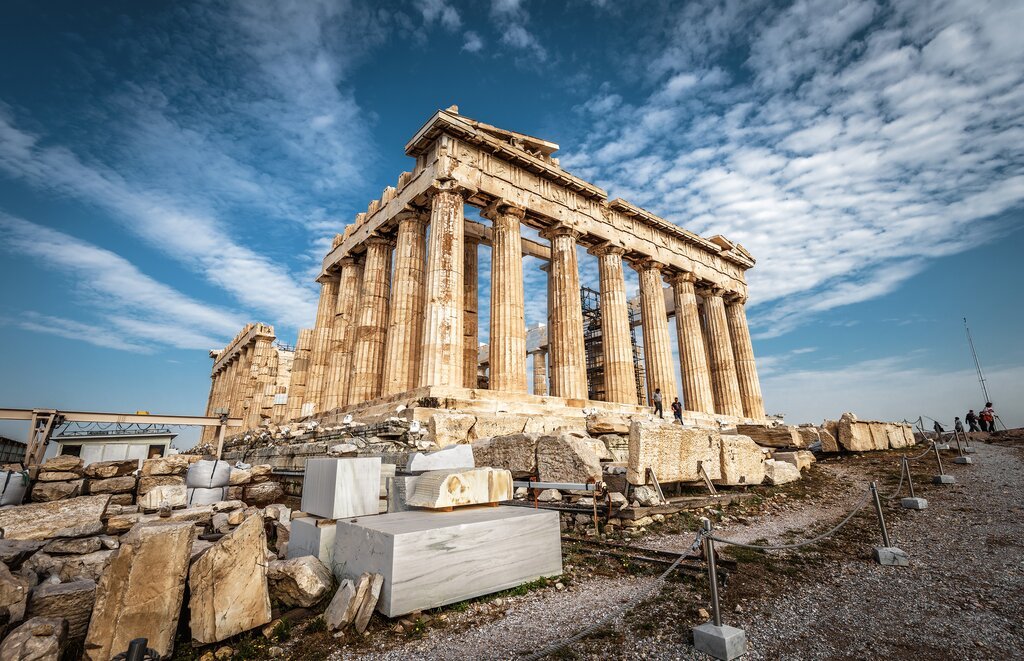
Discovering Greece: country with rich history
Greece, a country nestled in the southeastern corner of Europe, is often hailed as the cradle of Western civilization. Known for its stunning landscapes, picturesque islands, and azure waters, Greece's allure extends far beyond its natural beauty. It is a land steeped in history, culture, and mythology that has shaped the world in profound ways. From ancient civilizations to modern influences, Greece's rich history is a tapestry woven through millennia, inviting exploration and admiration, CE Report reports.
The Birthplace of Democracy
One of Greece's most significant contributions to the world is the concept of democracy, which originated in Athens during the 5th century BCE. The Athenian democracy was revolutionary for its time, allowing citizens—though limited in number—to participate in political decision-making. This radical idea of governance, where power rests with the people, has influenced systems of government globally. The principles of civic engagement, individual rights, and accountability laid the groundwork for modern democratic societies.
Ancient Civilizations and Philosophers
The history of Greece can be traced back to the Minoan civilization on the island of Crete, followed by the Mycenaean civilization on the mainland, both of which flourished during the Bronze Age. These periods are marked by remarkable advancements in art, architecture, and trade. However, it was during the classical age that Greek culture reached its zenith. Athens became a hub of intellectual and artistic activity, producing iconic works of philosophy, drama, and art.
Philosophers like Socrates, Plato, and Aristotle examined the nature of existence and ethics, leaving a legacy that continues to inform philosophical thought today. Their inquiries laid fundamental questions about knowledge, virtue, and governance that resonate in contemporary discourse. Additionally, playwrights such as Aeschylus, Sophocles, and Euripides introduced the world to the art of theater, exploring themes of tragedy, morality, and human experience that still captivate audiences.
The Birth of the Olympic Games
Another testament to Greece's rich history is the origin of the Olympic Games in 776 BCE. Held in Olympia, these games celebrated physical prowess and athleticism, fostering competition and camaraderie among the city-states of Greece. The temples and statues dedicated to the gods, as well as the athletes' accomplishments, reflect the deep interconnection between religion, culture, and sports in ancient Greek society. The Olympic Games continue to be celebrated today, embodying the same spirit of unity and competition, albeit on a global scale.
Byzantine Empire and Ottoman Influence
The history of Greece did not end with antiquity. Following the fall of the Western Roman Empire, Greece became part of the Byzantine Empire, a continuation of Roman governance infused with Greek culture and Orthodox Christianity. The Byzantine era produced stunning architectural wonders, most notably the Hagia Sophia in Constantinople (now Istanbul) and the development of rich theological and artistic traditions.
The Ottoman Empire's conquest of Greece in the 15th century marked a significant shift in the country's history. For nearly four centuries, Greece was ruled by the Ottomans, a period characterized by a complex interplay of cultural exchange and resistance. The struggle for independence in the 19th century culminated in the Greek War of Independence, leading to the establishment of a modern Greek state in 1830.
Modern Greece: A Tapestry of Cultures
Today, Greece is a vibrant nation where ancient history coexists with modernity. The ruins of ancient temples, theaters, and cities like Athens and Delphi stand as testaments to a glorious past, drawing millions of visitors each year. The capital, Athens, blends its historical heritage with contemporary life, featuring bustling markets, trendy neighborhoods, and dynamic art scenes.
Greek culture, deeply rooted in tradition, remains robust in its music, dance, and cuisine. Festivals celebrating ancient customs are interwoven with modern celebrations, showcasing a unique blend of history and contemporary life. The Mediterranean lifestyle, emphasizing communal gatherings and culinary delights, reflects the enduring values of hospitality and connection that have defined Greek society for centuries.
Conclusion
Greece is more than just a geographical location; it is a living museum of history that has profoundly influenced human thought, culture, and governance. Its contributions to democracy, philosophy, art, and sports are timeless legacies that continue to resonate throughout the world. As a country with a rich history, Greece invites travelers and scholars alike to explore its ancient ruins, experience its vibrant culture, and engage with the stories that have shaped the course of civilization. In uncovering its past, one does not merely witness history; one becomes part of an enduring narrative that reflects the resilience and creativity of the human spirit.























